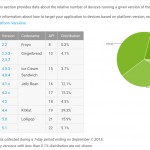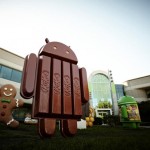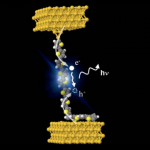iPhone 6 Plus: Everything You Need to Know About Apple’s Jumbo Phone
The iPhone 6 Plus is Apple's biggest phone to date, and the second new, bigger phone the company is i ntroducing today . Here's what you need to know. Read more...
Selfie sticks are banned at Coachella and Lollapalooza
If you're heading to either music festival this year, you can leave that selfie stick behind. Both April's Coachella and Lollapalooza in July have added the rods to their prohibited item lists. At Lollapalooza, the rules stipulate no "GoPro attachments like sticks, selfie sticks & monopods." Coachella said that "Selfie sticks / narsisstics" won't allowed in, showing a healthy lack of self-awareness... and spelling skill. As NME notes , the telescopic sticks have already been banned at multiple music venues, which can now add to the no-selfie stick list of major museums and Premier League football stadiums . The ban should help the non-stick carrying public enjoy public events and spaces a little more. The blowback has started, but it's probably not going to stop the selfie ... or the sale of associated peripherals. Comments Source: NME , Coachella , Lollapalooza
Android KitKat leak suggests big improvements for cheap phones and wearables
When you thought we were ready for Google's next announcement , along comes some fresh information, courtesy of regular Google news-breaker , Amir Efrati . He's apparently taken a look at confidential documents outlining what's going on with the next big mobile OS update. The Android KitKat iteration will apparently tackle that tricky fragmentation issue , and has been designed to work well even on lesser-specced Google-powered handsets. The new Android OS "optimizes memory use in every major component, " and will include tools to make memory-friendly apps for "entry-level devices" with memory even as low as 512MB. The other major point is how Google, a well-known proponent of wearables , is already is prepping for even more smartwatches and visors on its mobile operating system. The new version will reportedly include support for three new sensors: geomagnetic rotation vector, step detection and step counters, which could be Android's way of answering Apple's inclusion of a dedicated motion processor in its latest iPhone. The source reckons these are geared towards Google's rumored smart watch -- or possibly glass. Google is apparently still working on making NFC a bigger deal, and has also worked internally on improving smartphones' skills controlling your TV and other devices. Apparently, this will involve unifying how Android deals with IR blasters, rather than the fragmented approach brought by phone makers including Samsung, LG, Sony and HTC. Bluetooth is also rumored to see significant improvements, with Bluetooth HID over GATT and Message Access Profile increasing what Android-running hardware can talk with. We'll hopefully see how much of this hits the mark soon, and we have our fingers crossed that there's also a new phone , primed with those sensors, to go with it. Filed under: Cellphones , Software , Mobile , Google Comments Source: JessicaLessin.com
The 16 Most Awful Lego Sets Ever Assembled
Lego bricks are generally awesome, and by all accounts The Lego Movi e, opening this weekend, is as well. So we thought we'd make sure the folks at Lego didn't get too full of themselves by reminding the world of the worst toys, figures and building sets they've unleashed upon the world. Warning: Construction ahead. Read more...
How To Build Your Own Altoids Tin Survival Kit
Tiny, light and infinitely transportable, this affordable little kit might save your life in an emergency. Here's how to build your own mini survival kit and how to use the stuff in it. http://indefinitelywild.gizmodo.com/now-that-its-u... Read more...
Mystery Science Theater Thanksgiving Day Marathon Returns!
A long lost Thanksgiving tradition is resurrecting from the grave. The annual Mystery Science Theater 3000 marathon will return this year. It's a holiday miracle! Read more...
Why a Single-Molecule LED Could Be a Big Deal
Technologically speaking, smaller is virtually always better. So it's perhaps no surprise that scientists have developed the first ever single-molecule LED . But why is it potentially such a big deal? Read more...
Google says the best phishing scams have a 45-percent success rate
Conceptually, phishing scams sound easy to see through: a fake webpage with the wrong URL that doesn't look quite right -- who's going to fall for that? Quite a few people, apparently. According to a new Google study, the most successful phishing websites will capture data from 45-percent of its visitors. The least successful scams only scored information from three percent of its visitors, but when crooks are sending out phishing emails by the millions , that still adds up. The study found that the majority of the hijackers operate out of China, the Ivory Coast, Malaysia, Nigeria and South Africa, and that they work quick: 20-percent of accounts were compromised within 30 minutes of having information phished. Most hijacked accounts are used to continue the cycle: sending emails to account's contacts asking for bank transfers (under false pretenses, of course) or simply distributing links that might capture yet more accounts. The best way to protect yourself, Google says on its blog, are the old ways: enable 2-step verification on your accounts when possible and "stay vigilant" -- report messages asking for personal information to and never, ever reply to them. Want to read the full study? Click right here . [Image credit: Shutterstock] Filed under: Internet , Google Comments Via: Huffington Source: Google (1) , (2)
Personal Information of Nearly 200 Democrats Leaked in Latest Hack
We already knew that a recent hack that targeted Democratic officials was going to be more than just access to possibly incriminating emails, but we didn’t realize it would be this soon. Read more...
FBI says it located the Silk Road by exploiting an error with the server’s...
The US Federal Bureau of Investigation may have seized the Silk Road and sold off its horde of ill-gotten Bitcoin , but the case isn't over yet -- the dark web site's creator still has to face trial. The defense of Ross Ulbricht, the man allegedly behind the Silk Road, is doing its best to discredit the FBI's evidence; specifically, its accusing the bureau of sniffing out Silk Road server's location through illegal means. The FBI says that couldn't be further from the truth. In a court rebuttal, the FBI claims that the IP address of the server was "'leaking' from the site due to an apparent misconfiguration of the user login interface by the site administrator." Basically, FBI officials exploited a glitch to get the server to cough up its hidden location. Officials found that the login page could be coaxed into producing an IP address that didn't match TOR standards. When this address was used in a non-TOR browser, it produced an element of the login page, confirming that it represented the server's true location. If this rebuttal is accepted, it will dismiss the defense's accusations that the FBI used the NSA to illegally hack into the server to find its location. This would ensure that most of the FBI's evidence is admissible and possibly seal Ulbricht's fate. Check out the FBI's full rebuttal in the court document below. Silk Road Prosecution 4th Amendment Rebuttall Comments Source: Wired















